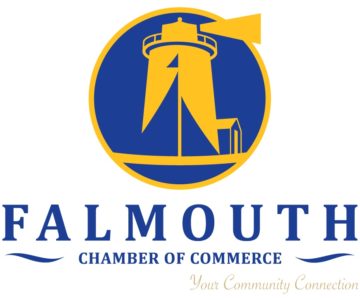By Douglas Karlson
A serious medical scare and subsequent search for healthy foods and drinks led an Osterville stay-at-home mom to an unlikely entrepreneurial venture: vodka.
When her fiancé, Greg Hoffman, was diagnosed with cancer, Charlotte Canzano says she got cooking. She used her skills in the kitchen to prepare foods and drinks Hoffman could tolerate — and which would help him get better. She began creating recipes for homemade smoothies, and flavor-infused vodka.
After Hoffman recovered, and it was time for a drink, Canzano found that her fiancée couldn’t tolerate beer and wine, which had too much sugar.
“It’s crazy. You’ve got cancer in the house and you start making vodka,” she says. Seeking the best flavors, “I experimented with cantaloupe, cucumber, blueberry, mint, you name it. Some were disasters but some were really good.”
In the process, she became curious about how to produce the vodka itself. “I always was a vodka drinker. I was drawn to it because I could give it any flavor I wanted. I became curious about the process of making vodka. It kind of mushroomed from there.”
To develop the right formula, Charlotte did lots of blind taste testing around her kitchen table. Her research is slow and methodical. Canzano says it takes time and patience to penetrate a market that’s as competitive and saturated as the vodka market.
After several years of experimentation and taste testing, Oysterville Vodka hit liquor store shelves in 2015. It’s now available in about 500 locations — bars, restaurants and liquor stores — in Massachusetts, Rhode Island and Connecticut.
The vodka is produced at a distillery on Riviera Beach, Florida. Rather than follow a private-label approach, putting her brand on someone else’s product, Canzano controlled the formulation process every step of the way, which required frequent visits to the distillery and many samples. She relied on regular taste testing around her kitchen table with friends and family members.
“I wanted to be involved in it, but I needed a master distiller,” she explains.
Canzano focused on producing a clean tasting, smooth vodka in the $22 to $25 per-bottle price range, which is the low- to mid-priced range.
“I was adamant about that,” she says of the price point. “I think that’s important. I didn’t want to make a vodka that was like a Belvedere, which is a great vodka but which costs you $48.”
Oysterville vodka is a corn vodka, like Tito’s. It’s gluten-free and has been winning awards as well. In 2018, it received a gold medal from the Sip Awards Competition, and in 2017 it picked up a silver medal at the New York World Wine and Spirits Competition.
Oysterville found its niche in the community from which it sprang: Osterville. Canzano credits that local community for the brand’s inspiration and support.
“You’ve got to find your niche,” says Canzano, who full-time to Osterville in 2009 and notes her family has summered there for five generations.
Her branding reflects the local community where she lives and the name is a nod to Osterville’s historical name, and also to her late father, Francis William Canzano, who was commodore of the Oysterville Yacht Club (a tongue-in-cheek club that raises money for The Cam Neely Foundation for Cancer Care).
Canzano estimates that Oysterville vodka produced about 5,000 bottles last year, in a range of bottle sizes. Since its founding, she says, production has about doubled every season.
Oysterville Vodka is distributed by L. Knife and Sons, which Canzano says has been critical for the brand’s growth. She says a strong distributor is essential, and luckily, the distributor loved Oysterville’s branding.
She’s now working to expand the brand’s position in Boston, and says sales are strong. “We are getting orders throughout the year which is exciting, because we have that liquor store presence.”
Canzano is the company’s sole employee. When she needs extra help, she frequently draws on her children, who range in age from 18 to 23. To promote sales, she conducts regular tastings at liquor stores, and donates bottles to local charities.
She says those tastings provide critical input. “You hear the good, the bad and the ugly. People give a lot feedback.”
That feedback, as well as time spent in the distillery’s test kitchen, is helping Canzano as she researches new products and develops new cocktail recipes. She has considered introducing a tequila, and is currently developing a spiked seltzer in a can for summer.
“There are so many things you can do,” she says. “I think we have a phenomenal brand, and the product is great.”
One of the greatest lessons Canzano has learned is the value of collaboration. “If you take a bunch of people and you put them around a table, there’s nothing you can’t do. Everybody brings something to the table,” she says. “It’s just a question of putting all that together.”
She also has advice for other would-be entrepreneurs. “You can’t fail if you don’t try. Don’t give up. You can do anything. I didn’t have a distillery, I just had to figure it out.”
Canzano credits her fiancée for his support, and says she couldn’t have done it without him. She also credits the friends and family who helped. Despite all her success, she says the greatest reward has been “showing my kids that a stay-at-home mom who put her kids through school can do anything.”
A winning Spirit – Stay-at-home mom creates new vodka brand





















